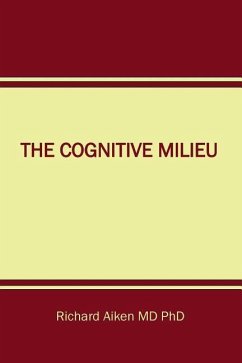This book was written for a most important but unsung group of therapists - those professionals who work all day with adolescents in a residential treatment setting. These therapists are often not titled as therapists per se, being assigned names such as "technician" or "direct care staff." We shall call them properly "Milieu Therapists," or even more formally "Cognitive Milieu Therapists." While the Individual Therapist may meet individually with the resident once a week for an hour, perhaps with the resident and family for another hour, and with a group of residents once or twice a week, the other 165 hours are primarily the treatment domain of the Milieu Therapists. The Individual Therapist introduces therapeutic concepts but these are practiced in the milieu. Therefore, a critical element for therapeutic progress is communication between the Individual Therapist and the rest of the Treatment Team, including the Milieu Therapist. This can be accomplished during staffings and through documentation such as the Master Treatment Plan with regular updates. Or through personal one-on-one contacts. Given the importance of the Milieu Therapists, it is curious that there is no degree program or licensing for this individual. Typically, there is great responsibility and expectations with little training and support. That was the main impetus for this book, a basic manual for the Milieu Therapist. This need became particularly apparent with our residential program in which Cognitive Behavioral Therapy (CBT) is used comprehensively, across all treatment modalities including in the milieu. Over the more than dozen years since its implementation, we have found this approach to be highly effective, providing the Milieu Therapist with an excellent tool to assist residents to advance in their treatment within a therapeutic cognitive milieu. The idea of a "cognitive milieu" could apply to any setting, not just residential treatment. For example, we have applied it successfully in modified form to acute hospitalization. However, the basic principles could be utilized also in group homes, schools, even family settings. The main ingredients are knowledge of CBT and the presence of a facilitator to help the participant recognize triggers and respond to them with reality-based logic rather than distorted conditioned responses. Life is difficult. As Mark Twain once said: "It's mind over matter, if you don't mind, it doesn't matter." Some situations, even faced with realistic true understanding are still difficult. If we can understand that and accept that fact as an integral part of the human condition, it is not so difficult. It's just life. What we as therapists try to do is facilitate removal of self-made difficulties, those that exist because of negative unrealistic processing of our environment. Typically, these distortions are based on unpleasant memories of the past or fears of the future - not so much on what is happening now. Now can be difficult but manageable. The past, a potentially useful concept that we can learn from, cannot be altered now - that's impossible; the future, also a useful concept that we can prepare for, cannot be dealt with now - that's impossible. The milieu therapist helps the resident deal with the reality of now.
Bitte wählen Sie Ihr Anliegen aus.
Rechnungen
Retourenschein anfordern
Bestellstatus
Storno



